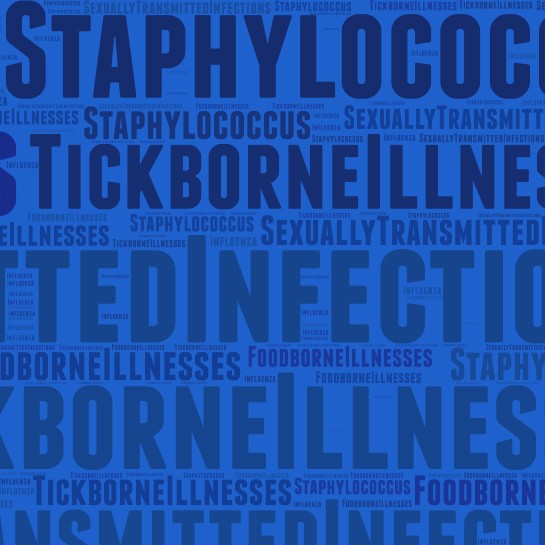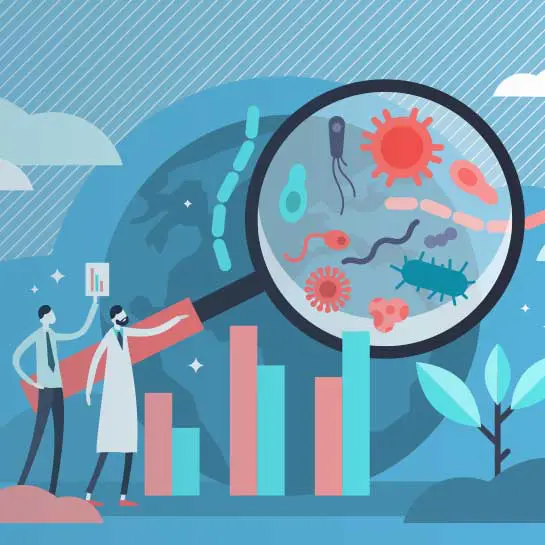Symptoms and Treatment
for Gonorrhea
Gonorrhea Treatment
As one of the most common sexually transmitted diseases (STDs), gonorrhea affects over 1 million people in the United States every year. Gonorrhea is a bacterial infection that spreads from person-to-person, usually during unprotected oral, anal, or vaginal intercourse. However, it can spread other ways. For example, a mother can pass gonorrhea to her baby during pregnancy.
While gonorrhea can disrupt your daily life, cause unpleasant symptoms, and sometimes result in complications, it is curable. Visit one of the nine ID Care locations throughout New Jersey for gonorrhea treatment as soon as possible if you believe you’re experiencing symptoms.
Signs and Symptoms
After gonorrhea is transmitted, it may take several days or weeks for symptoms to appear. While gonorrhea typically affects the genitals, symptoms can also appear in other places of the body, like the eyes and throat. Some people, however, never develop any symptoms. It’s also important to know that you may have different symptoms than your partner, as gonorrhea usually affects men and women differently. Here are some key signs to look out for.
Symptoms in Men
- Painful urination
- Pus-like discharge from the penis
- Painful or swollen testicle(s)
Symptoms in Women
- Increased vaginal discharge
- Painful urination
- Vaginal bleeding between periods and/or after intercourse
- Painful intercourse
- Abdominal or pelvic pain
Diagnosis and Treatment
The only way to know for certain if you have gonorrhea is to get tested. During your appointment at ID Care, a doctor will test a sample of your urine and take a swab of your cells from the affected area. For instance, they may swab your throat, vagina, or rectum, depending on where the infection is located. Then, the samples will be tested to confirm whether or not gonorrhea is present. It’s also recommended to get a full STD screening at this time, especially since gonorrhea is often accompanied by other diseases, like chlamydia.
If you are diagnosed with gonorrhea, rest assured that treatment is available. With the right medication, gonorrhea can be cured, and you can live symptom-free. Your ID Care doctor will likely inject an antibiotic called ceftriaxone, which will target and kill the bacteria. Sometimes antibiotic pills may also be prescribed. Your doctor will also be happy to answer any questions you may have and can offer advice on how to prevent gonorrhea in the future.
Preventing Gonorrhea
Even though gonorrhea is curable, serious complications can develop, like pelvic inflammatory disease and infertility. That’s why it’s important to take proper precautions. Some tips to help prevent gonorrhea include:
- Practice abstinence
- Use condoms every time you have sexual intercourse
- Make sure you and your partners get tested frequently
- Do not have sex with someone who has gonorrhea symptoms
While anyone can get gonorrhea, some are more at risk than others. If you are in your early 20s, have multiple sexual partners, or have a new sexual partner, your risk is higher. Men who have sex with men are also at an increased risk.
Get Treated for Gonorrhea Today
If you suspect you might have gonorrhea, visit ID Care as soon as possible. Getting treated doesn’t just help your own body – it also prevents you from spreading the STI to your partners. Luckily, gonorrhea treatment is quick and relatively painless. The infectious disease team at ID Care can provide the support, resources, and healthcare you need to make a full recovery. Contact us today at 908-281-0221 to learn more.





